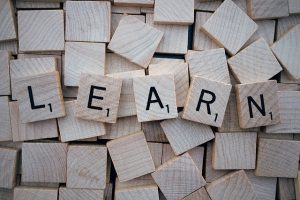How Books Become Life Teachers

When Stories Speak Louder Than Lessons
Some life lessons slip in unnoticed. Others hit like a bolt of lightning. Books manage both. They nudge readers toward quiet self-reflection or shake them with a truth that changes the way the world looks. Unlike lectures or rules handed down by others books do not insist. They invite. A well-told story feels less like a sermon and more like a shared moment around the fire.
Fiction and nonfiction each carry their own way of teaching. A novel might not explain grief in neat definitions but it shows someone walking through it making mistakes finding grace. A memoir might not offer steps to bravery but it reveals choices made in silence. Books can teach without preaching and that makes all the difference.
The Lessons Hide in the Details
What makes a book a better teacher than a person sometimes is patience. A book waits. It holds its wisdom between pages ready when someone is. And the best part is that the lesson comes wrapped in character and plot in rhythm and language that sinks in without effort.
A child who reads “Charlotte’s Web” learns more about loyalty and loss than most grown-ups can explain. A teenager stumbling through identity might find comfort in “The Catcher in the Rye” or “Giovanni’s Room”. These books do not offer direct instructions. They show lives being lived and quietly ask what kind of life feels true.
Not every book teaches something on purpose. Some just stay with the reader long enough to matter. And that is teaching too.
To find books that carry these unexpected lessons across time and distance some rely on Z lib in combination with Anna’s Archive and Library Genesis. Together they open doors to shelves once out of reach.
The way stories teach becomes clearer through examples worth exploring:
Characters Who Teach More Than Any Lecture
Books introduce characters who become mentors of sorts. Whether flawed or wise these figures guide by example and contradiction. One might learn compassion from Atticus Finch or resilience from Jane Eyre. They speak in actions not slogans.
The lesson often lies in seeing someone fail and keep going. Fiction creates a safe space to explore fear hope anger and love all without real-world risk. Characters become mirrors or warnings or both.
Memoirs That Whisper Hard Truths
When someone shares their life unvarnished the pages take on the weight of trust. Memoirs do not dress up pain. They name it. They walk through it. That honesty becomes a kind of education no classroom matches.
“Educated” by Tara Westover and “The Glass Castle” by Jeannette Walls carry hard stories told without apology. These books hold up a mirror to both hardship and the strength to rise. Reading them teaches endurance and empathy without ever calling it a lesson.
Unexpected Lessons from Genre Fiction
Fantasy crime sci-fi—often dismissed as entertainment—teach too. A world imagined still holds real emotions. “Dune” explores power and prophecy. “Kindred” puts time travel at the service of historical reckoning.
Genre stories sneak up on the reader. They wrap big questions in action or suspense. That surprise is part of what makes the lesson stick. One finishes the story and realises something shifted inside.
Nonfiction That Shapes Thought
Some nonfiction does not just present facts—it reshapes how those facts are seen. A book like “Sapiens” pulls back the curtain on humanity’s shared journey. “The Body Keeps the Score” explains trauma in a way that invites compassion instead of judgment. These books are teachers with sharp minds and open hands. They do not force agreement. They welcome curiosity. That makes the learning feel earned.
Books that teach often do it with a quiet voice but the echo stays long after the page is turned.
Why the Lessons Stay
A book becomes a life teacher when it meets a reader at the right moment. It does not matter if it was written a century ago or yesterday. What matters is the spark it lights.
Books give something school cannot always offer—freedom to learn at one’s own pace from voices chosen not assigned. That freedom builds understanding in a deeper way. The lessons in books live in the memory not as rules but as stories that shaped belief.
Reading is not a shortcut to wisdom but it is a road worth taking. Some stories hold a map. Others offer company on the way. Either way the journey is richer with them.






